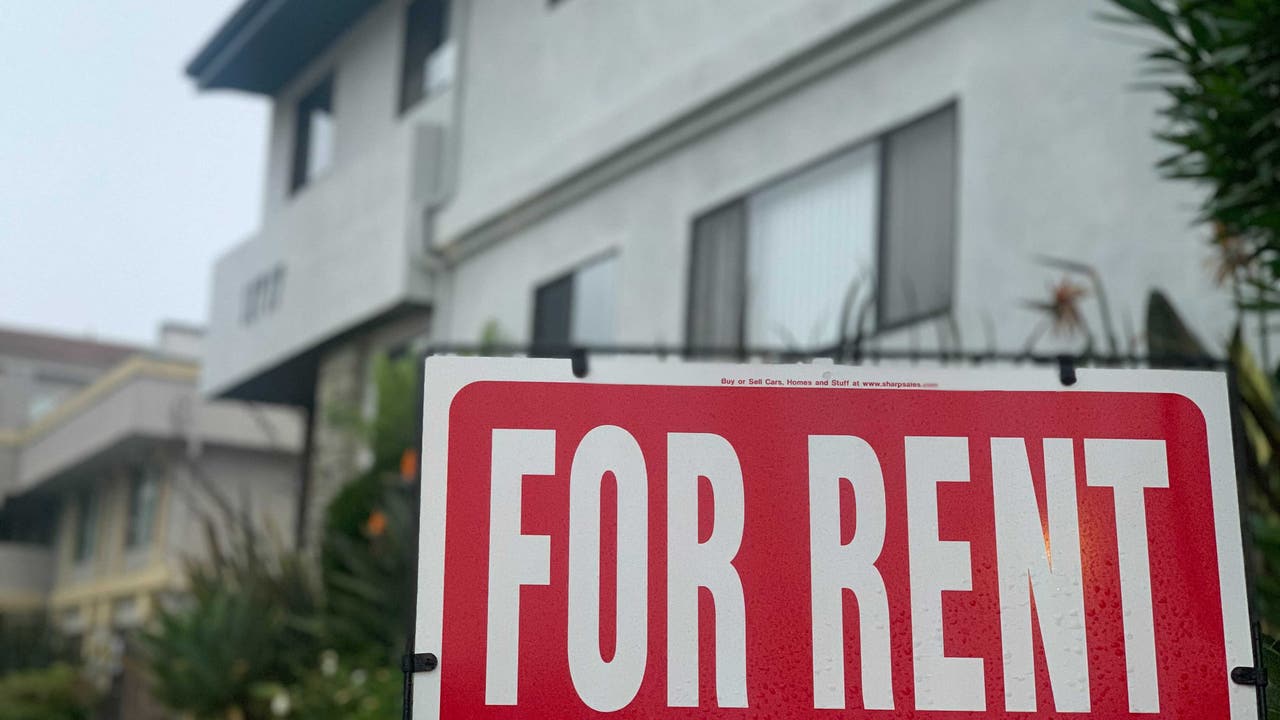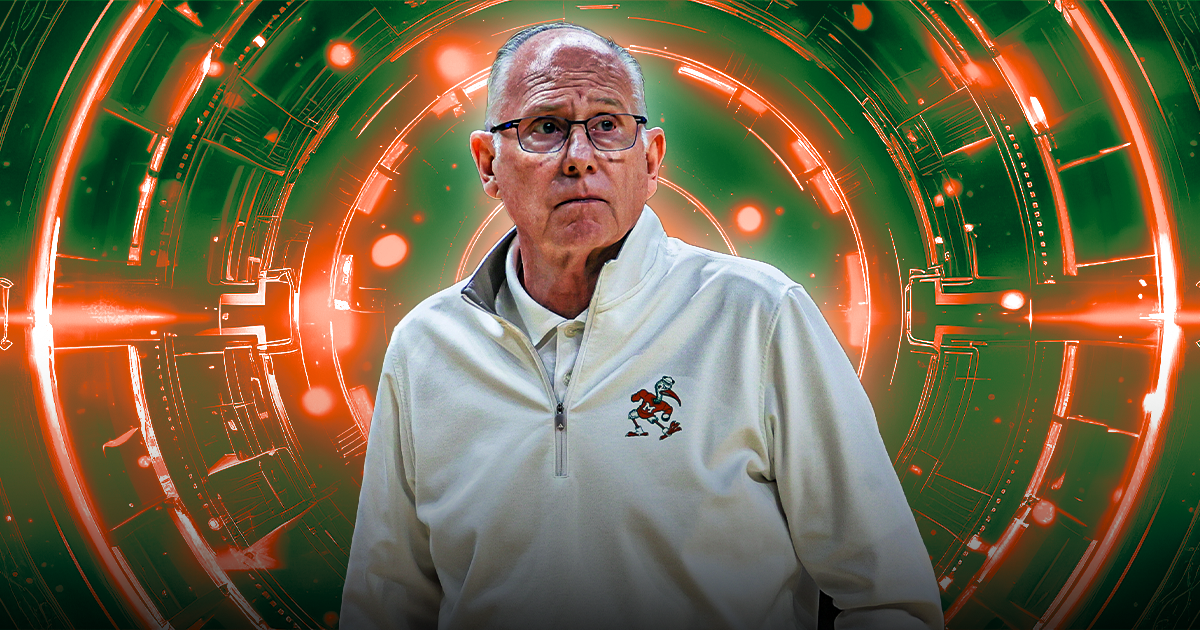Finance
I’m a Real Estate Agent: 7 Best Sources for Financing a Down Payment

megaflopp / Getty Images/iStockphoto
A recent press release from Zillow found that roughly 60% of all first-time homebuyers are using at least two sources to finance their down payment on a house. These sources tend to be their own savings, gifts from family members and down payment assistance programs.
As more first-time buyers arrive on the real estate scene and housing prices are still high, finding creative ways to finance a down payment has become more important than ever before. Even returning homeowners might need to look for new ways to save up for a down payment on a house.
If you’re thinking about purchasing a home, here are some of the best ways to finance your down payment, according to real estate agents.
Money From Savings
One of the best ways to finance a down payment on a house is with your personal savings — ideally kept in a high-yield savings account.
“The best sources to use to finance a down payment are liquid cash ‘savings’ that have been seasoned in an account for 60 to 90 days,” said agent Karen Kostiw, a licensed real estate professional at Coldwell Banker Warburg. “Lenders want to have a paper trail of the monies used for a down payment, and so will require at least six months of statements evidencing where these funds have come from.”
On the other hand, it’s not generally recommended to use money from retirement accounts to finance your down payment.
“Withdrawing funds from retirement accounts or IRAs, which can have penalties, is not a wise route, but sometimes the only possibility,” said broker Gerard Splendore of Coldwell Banker Warburg. The same goes for credit card cash advances. “Clearly, cash advances from credit cards will backfire as a source of down payment funds, as this will appear on one’s credit report.”
Gift Money
“The best source of financing for a down payment is pulling funds from a long-term savings/checking account that has all of the funds seasoned and sourced. However, this is not the reality that a lot of homebuyers are working with,” said Farah Sutton, a licensed realtor in Arizona.
Cash gifts from loved ones can help finance a down payment when you don’t have enough money in savings. However, there are certain steps and requirements you need to consider when going this route. This is especially important if you’ve just received the cash gift as a lender might not consider it to be “seasoned” — that is, money that’s been in your account for 60 or more days.
“Families that provide gifts for down payment assistance will need to complete documentation and a letter stating that the money is a gift and not a loan or expected to be paid back. Family members will also need to show the source of their gift monies if the funds are not seasoned. Different lenders have differing requirements and hurdles to overcome for gifts,” Sutton said.
“In addition, there are different rules on who can give a gift, depending on the type of mortgage loan,” Sutton said. “The reason that the down payment money needs to be seasoned from a verified source, even if it is gift money, is to prevent potential fraud and to ensure homebuyers are not incurring additional debt through a family/private loan that the mortgage underwriters have not allowed for.”
Down Payment Assistance Programs
Many homebuyers rely on down payment assistance programs to help finance their homes.
“There are so many different programs out there and each state and even county has different programs,” said Haley Bartlett, realtor at Your Aussie Agent. “Just beware of the income limits.”
“Not all borrowers are eligible for down payment assistance due to their financial picture, so it’s important to have discussions with a lending institution about what programs are available to the potential borrower,” Kostiw said. “Additionally, not all programs meet building requirements or are offered in certain locations.”
Besides that, down payment assistance programs do come with certain drawbacks.
“One thing to note with down payment assistance programs is that they tend to have higher than prime interest rates,” Sutton said. “It is important to work with your lender to determine what programs you might qualify for.”
These programs also aren’t entirely free.
“When utilizing down payment assistance programs, it’s important to understand that the money isn’t free — it’s added onto a line of the property on the title and you’ll typically have to attend classes to qualify,” said Kevin Zellmer, owner and managing broker at Realty ONE Group Enterprise — Bellevue.
Grants
Grants are another option when financing your down payment. What’s great about grants is that you also don’t need to pay back the money. Not only that but even a small grant can help cover closing costs, which are usually required upfront along with the down payment.
“Closing costs are used to pay for items such as appraisals, inspections, and much more — these can amount to up to three percent or more of the final purchase price,” said Ashley Moore, community lending manager at Chase Home Lending. “While there is no way for a buyer to completely avoid paying these fees, there are ways that homeowners can save on them, such as local homeowners’ and down payment assistance programs and even lender-backed resources.”
Moore added, “For example, Chase offers a $5,000 Homebuyer Grant in eligible census tracts that can be used toward closing costs or down payment when a customer purchases a primary residence in minority neighborhoods nationwide. This grant could also be used to pay down your interest rate, which could save you thousands over the life of the loan.”
Investments
Another option is to use current investments — such as stocks — to help cover the down payment.
“Borrowers often choose to use stocks to cover the down payment. It’s important for borrowers who are planning to liquidate their stock[s] to be aware of the capital gains tax and the time it takes to do so,” Kostiw said.
Some people also use their 401(k) to finance their down payment, though this comes with its share of issues.
“Another way of getting the money but one I would avoid if possible is accessing your 401(k),” Bartlett said. “This can take money from your future and retirement that you may need down the track.”
“Borrowers who are planning to use their funds in a retirement account should be aware of the penalties they will be exposed to by withdrawing them early,” Kostiw said.
USDA or VA Loan
While most mortgage lenders require a minimum down payment of around 3% or 3.5%, you might qualify for a loan without putting up a down payment at all.
“If you are a veteran or buy a home in a USDA rural address, you can get 100% financing, so no down payment is required,” said Melissa Cohn, regional vice president at William Raveis Mortgage.
Proceeds From a Previous Home
If you’re selling your current home for a new one, you can use some of the proceeds from the sale to finance your down payment. But be wary of any companies that offer to help with the down payment in exchange for some of these proceeds.
“There are a number of companies that will provide you with a down payment in exchange for a percentage of the profits when you sell the home,” Cohn said. “These options are very expensive, and there are also very few banks that will offer a mortgage if the down payment is obtained from one of these companies.”
In some cases, current homeowners might choose to take out a home equity loan to help cover the down payment on the new home. While this might be an option, it can also be risky as you could lose your current home if you default on payments. Other types of loans might be best avoided as well.
“I don’t recommend financing a down payment through hard money loans or through the method of seller financing,” Zellmer said. “Although seller financing is an option that is frequently considered by those who are self-employed or those who don’t immediately qualify for traditional lending, there is a significant risk here as the down payment will go to the seller and they will hold the mortgage. Additionally, if the buyer undergoes any hardships and is unable to pay the seller financer, the home can be foreclosed upon and the buyer will have more trouble securing traditional assistance down the road.”
Zellmer added, “I also can’t stress enough that first-time homebuyers should not finance hard money loans for the purchase of a primary residence. For investment flips, hard money loans are OK, but for primary residences these loans come with high points and high interests ranging from 12-14% with only 12-month terms to pay back.”
Bottom Line: How Many Down Payment Sources Should You Have?
Ultimately, it’s up to you how many sources you use for your down payment.
“Two sources is not necessary if you can find one good source to help you with your down payment that is the least complicated way to go about it,” Bartlett said.
At the same time, you can use two or more sources if you feel comfortable doing so. “Using as many sources of down payment for financing as possible, without overextending oneself, is preferable as opposed to one,” Splendore said. “The financial market is forever changing and volatile; it is best to have options.”
More From GOBankingRates

Finance
Downing & Co. Elevates Financial Legacy With Expert Estate Planning Services in Portland

Portland-based CPA firm helps clients safeguard their wealth and secure their family’s future with comprehensive estate planning services.
PORTLAND, OREGON / ACCESSWIRE / December 26, 2024 / In a city renowned for its entrepreneurial spirit and thriving businesses, Downing & Co. is taking a bold step forward in helping Portland residents protect what matters most: their legacy. The firm offers specialized estate planning services, designed to ensure their clients’ wealth is preserved and passed down seamlessly to future generations.
With over five decades of experience in financial strategy, Downing & Co. brings a trusted, proactive approach to estate planning. As Portland’s go-to CPA firm, they’ve built a reputation for delivering personalized solutions that go beyond typical financial management. Their estate planning services focus on reducing tax burdens, avoiding costly mistakes, and ensuring assets are distributed according to the client’s wishes.
“Estate planning isn’t just about financial protection-it’s about preserving your life’s work and values for the people you care about,” said Tim Downing, Managing Principal at Downing & Co. “Our goal is to provide peace of mind by ensuring that clients’ wealth stays where it belongs-within their family and community.”
Why Estate Planning Matters in Portland
For high-net-worth individuals and small business owners, estate planning is critical in Portland’s competitive economic landscape. Without a clear plan, families risk losing up to 40% of their inheritance to taxes and government regulations. By offering expert guidance and strategic structuring, Downing & Co. ensures clients avoid these pitfalls while safeguarding their financial legacy.
Key benefits of Downing & Co.’s Estate Planning Services include:
-
Minimizing Estate Taxes: Advanced planning can reduce the tax burden on your estate, ensuring more of your wealth is retained by your heirs.
-
Efficient Wealth Transfer: Clear strategies streamline the process of passing on assets, reducing legal challenges and delays.
-
Preserving Family Legacies: Customized solutions ensure your assets align with your values, supporting the people and causes you care about most.
-
Proactive Risk Mitigation: Estate plans address potential legal and financial risks, protecting your wealth against unforeseen challenges.
A Holistic Approach to Financial Security
Downing & Co.’s Estate Planning Services are part of a broader commitment to comprehensive financial management. Their holistic approach integrates tax planning, wealth preservation, and business advisory services to create a seamless strategy that addresses every aspect of a client’s financial well-being.
Finance
Stock market today: Dow, S&P 500, Nasdaq fall after Christmas break
US stocks fell Thursday as trading resumed after the Christmas holiday, as Wall Street digested one of the only economic data points of the week.
The S&P 500 (^GSPC) was down 0.3% while the the tech-heavy Nasdaq (^IXIC) declined 0.3%. The Dow Jones Industrial Average (^DJI) lost 0.4%, leading the way down.
Meanwhile, bitcoin (BTC-USD) slumped, falling below the $96,000 level as volatile trading continued. Crypto-linked stocks like MicroStrategy (MSTR) tracked the declines.
Markets looked to be struggling in a bid to extend the start of the “Santa Claus rally,” which kicked off with a bang on Tuesday. All three major indexes rose around 1%. The S&P 500 (^GSPC) and Nasdaq Composite (^IXIC) are within striking distance of their records after clawing back gains from a Fed-fueled dive last week.
As Wall Street saunters back from its holiday break, the normally routine release on weekly jobless claims took more of a spotlight than usual, as the only piece of the jobs puzzle on the docket this week.
Labor Department data released prior to the market open showed weekly jobless claims fell to 219,000 compared with expectation of 223,000. However continuing claims surged to 1.19 million in the week ending December 14 to the highest level since November 2021, in a sign the labor market may be cooling. LIVE 1 update
Finance
Former Finance Manager of Historic Sotterley Charged with Embezzlement of $15,000

Angela Marie Hanson, 52, of California, Maryland, has been indicted on charges of embezzlement and theft following allegations of financial misconduct during her tenure as Finance Manager for Historic Sotterley, Inc. According to court documents, Hanson is accused of stealing nearly $15,000 over a five-month period from October 31, 2023, to April 15, 2024.
Hanson, who oversaw financial operations at the historic property, is scheduled for her initial court appearance in the Circuit Court for St. Mary’s County on January 13, 2025. She faces a felony charge of theft scheme involving $1,500 to $25,000, a misdemeanor embezzlement charge, 50 counts of theft between $100 and $1,500, and 17 counts of theft under $100.
Authorities allege that Hanson misappropriated funds using a debit card linked to Historic Sotterley’s “Museum Shop” account. Over 50 ATM withdrawals and several unauthorized purchases were reportedly made at local businesses, including gas stations and convenience stores.
Court filings claim Hanson also transferred funds between Historic Sotterley’s accounts to conceal her activities. Investigators allege that Hanson continued these actions even after her employment ended in February 2024.
The St. Mary’s County Sheriff’s Office led the investigation, which included reviewing banking records, witness testimony, and surveillance footage. Historic Sotterley’s Executive Director identified Hanson as the only individual with access to financial systems and administrative rights during the period in question.
Investigators state that surveillance footage shows Hanson conducting ATM withdrawals using the organization’s debit card. When questioned by law enforcement, Hanson acknowledged managing Historic Sotterley’s finances but denied any intent to defraud.
-
/cdn.vox-cdn.com/uploads/chorus_asset/file/24924653/236780_Google_AntiTrust_Trial_Custom_Art_CVirginia__0003_1.png)
/cdn.vox-cdn.com/uploads/chorus_asset/file/24924653/236780_Google_AntiTrust_Trial_Custom_Art_CVirginia__0003_1.png) Technology6 days ago
Technology6 days agoGoogle’s counteroffer to the government trying to break it up is unbundling Android apps
-

 News7 days ago
News7 days agoNovo Nordisk shares tumble as weight-loss drug trial data disappoints
-

 Politics7 days ago
Politics7 days agoIllegal immigrant sexually abused child in the U.S. after being removed from the country five times
-

 Entertainment1 week ago
Entertainment1 week ago'It's a little holiday gift': Inside the Weeknd's free Santa Monica show for his biggest fans
-

 Lifestyle7 days ago
Lifestyle7 days agoThink you can't dance? Get up and try these tips in our comic. We dare you!
-
/cdn.vox-cdn.com/uploads/chorus_asset/file/25672934/Metaphor_Key_Art_Horizontal.png)
/cdn.vox-cdn.com/uploads/chorus_asset/file/25672934/Metaphor_Key_Art_Horizontal.png) Technology2 days ago
Technology2 days agoThere’s a reason Metaphor: ReFantanzio’s battle music sounds as cool as it does
-

 Technology1 week ago
Technology1 week agoFox News AI Newsletter: OpenAI responds to Elon Musk's lawsuit
-

 News3 days ago
News3 days agoFrance’s new premier selects Eric Lombard as finance minister



















